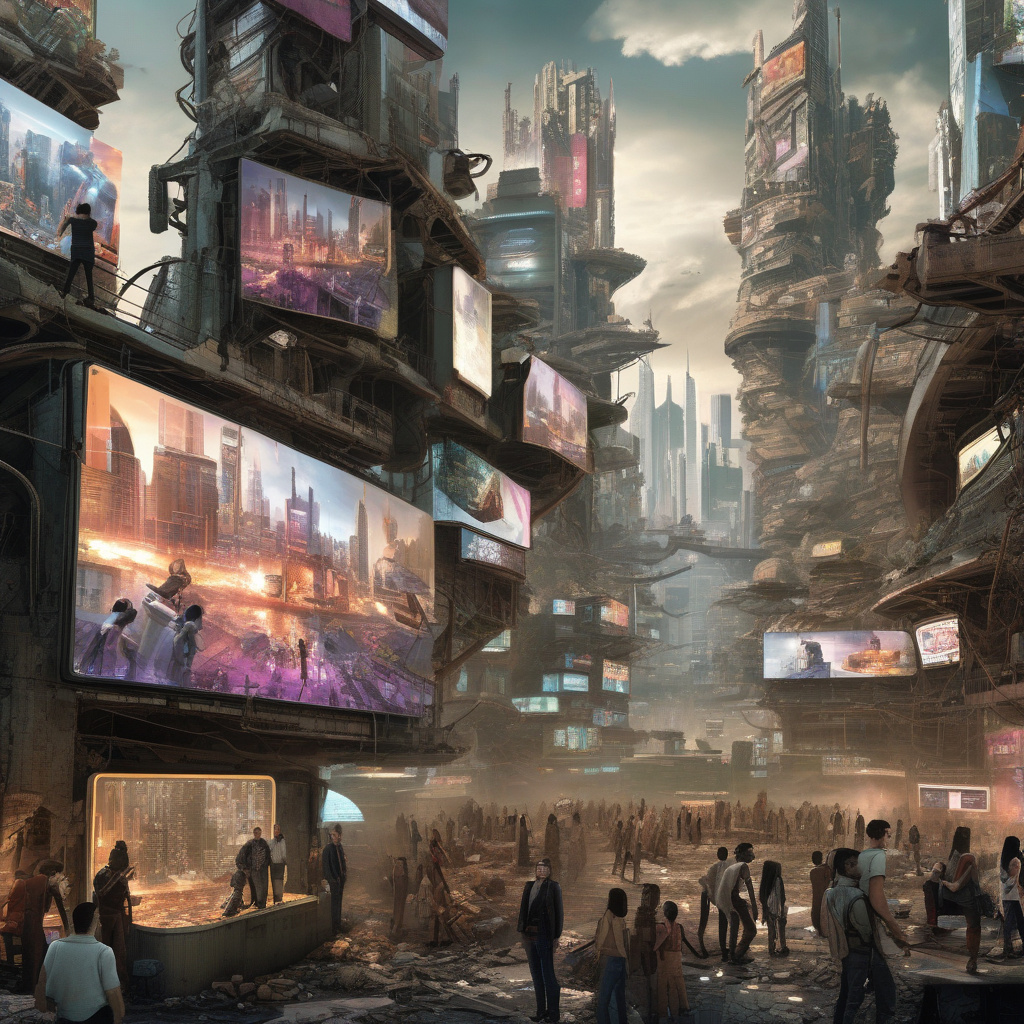Surviving Digital Ads in an AI-Created Short-Term Dystopia
In a not-so-distant future, the renowned futurologist Mo Gawdat forecasts a turbulent period ahead. The year 2027 is earmarked for what he terms a short-term dystopia, a phase where the world as we know it may face significant challenges. While the implications of such a prediction are vast and varied, one industry that is likely to be profoundly impacted is digital advertising.
The realm of digital marketing has been no stranger to evolution. From the early days of pop-up ads to the rise of social media influencers, the landscape has continually shifted to adapt to changing consumer behaviors and technological advancements. However, the prospect of navigating a short-term dystopia created by artificial intelligence poses a unique set of challenges for advertisers.
As AI technologies become increasingly sophisticated and autonomous, the role of advertisers in crafting and disseminating marketing messages may fundamentally change. In a dystopian scenario where AI algorithms have unprecedented control over consumer data and decision-making processes, traditional advertising strategies may become obsolete overnight. The very foundations of digital advertising, built on targeting and personalization, could be upended by AI systems that operate beyond human comprehension.
So, how can digital ads survive in an AI-created short-term dystopia? The key lies in embracing adaptability, creativity, and human ingenuity. While algorithms may excel at processing vast amounts of data and predicting consumer behavior, they lack the emotional intelligence and creativity that human advertisers bring to the table. By focusing on storytelling, brand authenticity, and experiential marketing, advertisers can differentiate themselves in a landscape dominated by AI-generated content.
Moreover, the rise of AI-driven dystopia presents an opportunity for advertisers to rethink their approach to ethical advertising. As concerns around data privacy, algorithmic bias, and misinformation continue to grow, consumers are becoming more discerning about the content they engage with online. By prioritizing transparency, accountability, and ethical practices, advertisers can build trust with their audiences and stand out in a sea of AI-generated noise.
Additionally, collaboration and knowledge-sharing will be crucial for the survival of digital ads in a dystopian AI future. By fostering partnerships with AI experts, data scientists, and behavioral psychologists, advertisers can gain valuable insights into consumer preferences and decision-making processes. This interdisciplinary approach can help advertisers create more targeted, impactful campaigns that resonate with audiences on a deeper level.
In conclusion, while the prospect of a short-term dystopia created by AI may seem daunting, it also presents an opportunity for innovation and reinvention in the world of digital advertising. By staying agile, ethical, and human-centered, advertisers can not only survive but thrive in a future where AI reigns supreme. As Mo Gawdat’s prediction looms on the horizon, the resilience and creativity of the digital marketing industry will be put to the test like never before.
digital marketing, AI, advertising, dystopia, future trends
